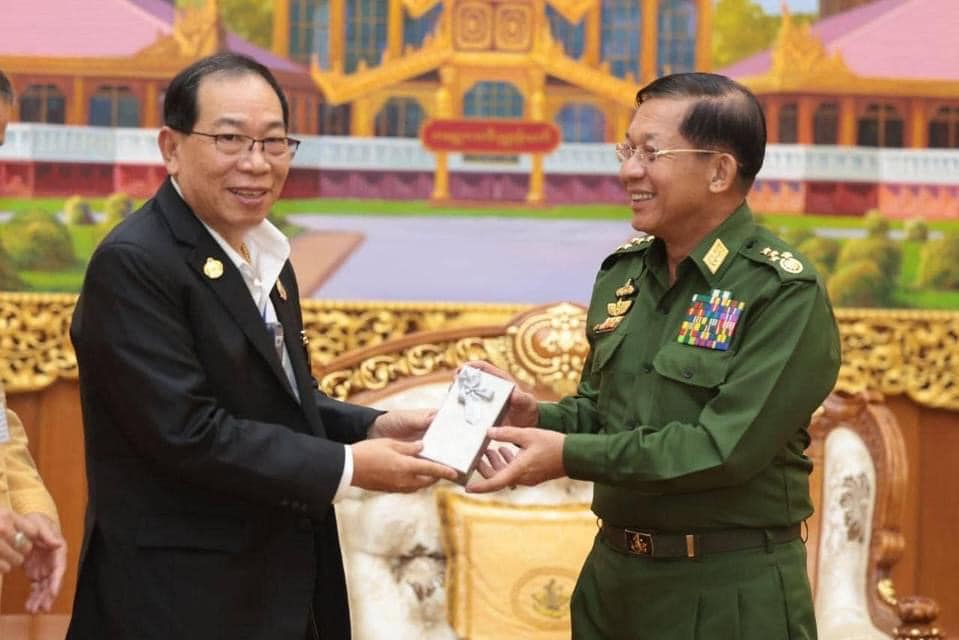General Yawd Serk, the chairman of the Restoration Council of Shan State (RCSS/SSA), attended the junta’s much mooted “peace talks” today, seemingly putting the full support of the EAO behind the military.
The pair are said to have discussed ways to develop a “federal union”, appropriating a phrase popularised by Burma’s parallel and democratically recognised National Unity Government.
The move is extremely significant — the RCSS, a National Ceasefire Agreement (NCA) signatory, had last year said that it would fight the military as long as it continued to attack civilians; the change in stance likely reflective of the fact that the SSA has faced increasing attacks, losing territory to rival Shan EAOs: the SSPP, TNLA and, to a lesser extent, the UWSA. Fighting between the groups has escalated dramatically in central Shan State since December.
If the military succeeds in brokering deals with all major Shan armed groups that have agreed to talks; the RCSS, SSPP, and the United Wa State Army; it can deflect the threat of the state’s EAOs, removing what would be a key front from the national battlefield whilst fomenting internecine warfare between groups in the region.
Such alliances would also damage the operational capacity of resistance groups operating from Shan and into the broader region, recently formed anti-military guerrilla forces reliant on the covert support of Shan’s EAOs.
Although currently unlikely, if failing to gain the support of other Shan groups and choosing to overtly back the RCSS, Min Aung Hlaing risks bringing Burma’s most powerful EAO, the USWA, into a new power struggle with the Burma Army.
The RCSS — one of the country’s largest EAOs — was the first of ten armed groups scheduled to meet with Min Aung Hlaing; others will meet with the coup leader, in person, every three days from May 20.
Chairmen from three of the armed groups have announced they are to meet the coup leader, while remaining organizations will send lower-ranking party secretaries.
Yawd Serk — ex-top aide to one of the world’s most powerful drug lords, the deceased Khun Sa — is by far the most prominent individual to have agreed to Min Aung Hlaing’s talks, something that Naypyidaw’s state photographers did not fail to take advantage of. Local residents of the RCSS’s traditional bases in southern Shan have told DVB that, in the power vacuum caused by the coup, poppies have returned to fill the hills of the region, a fact contributing to the uptick in Shan violence.
Political analysts point out that all those attending the coup leader’s meetings are not currently at war with the junta, suggesting that the majority of the armed groups have little interest in discussing peace, yet an intent to enhance their own standing with the military vis-a-vis the majority of Burma’s major EAOs, who have boycotted talks.
Among the participants, seven of the EAOs are NCA signatories, while the United Wa State Party (UWSP/UWSA) and the National Democratic Alliance Army (NDAA) have observed ceasefires with the Burma Army for over 30 years. The Shan State Progressive Party (SSPP/SSA) also maintains relatively cordial relations with the junta.



